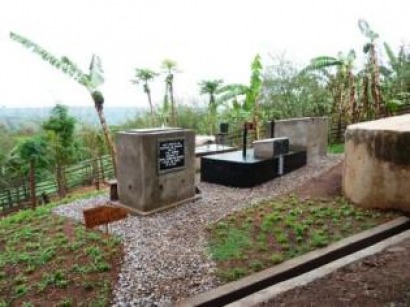
The steady deterioration in soil quality and lack of adequate sanitation in the region of Kagera (Tanzania) led the non-government organisation Engineers Without Borders and several students from the Department of Soil Science at the Technische Universität Berlin (Berlin Technical University) to design and implement the project entitled Carbonization as Sanitation (CaSa). Basically, the joint project involves developing a technology for carbonising human waste, which eliminates all pathogens and enables charcoal and biogas to be produced during the process.
The project also involved Mavuno Project, an NGO working on the ground in Kagera with various development programmes related to water supply, education, Aids, microcredit, agriculture and biogas production to promote energy independence and ensure energy can be generated without leading to deforestation in the area and threatening people’s health. Historically, the local population has suffered from respiratory problems and eye infections due to the poor combustion of biogas in homes.
Biogas used to supply power for entire process
The CaSa team explain that the technology they have developed eliminates all pathogens in human excrement that can lead to disease, leaving only vital nutrients and carbon in the end product that can then be used as fertilizer. This, they say, will help curb soil erosion in this area of Tanzania. In parallel to the carbonization process, biogas will also be produced in a plant designed by the students. This biogas will provide energy for the entire process.
The technology has passed through various stages in the laboratory and the team expects it to be rolled out in Tanzania next year. Before that (between July and September of this year), and after Department of Soil Science students have constructed a pilot plant in a greenhouse in Berlin, final testing will be performed by recreating as closely as possible the environmental conditions and even accessing the technology used in Kagera, to ensure the CaSa project can be rolled out in Tanzania without suffering any setbacks.
For additional information:


